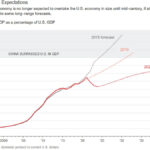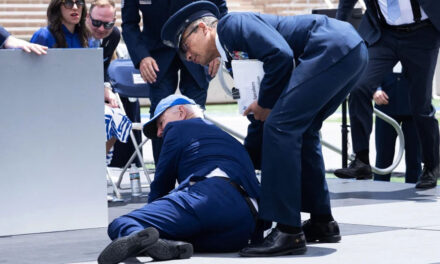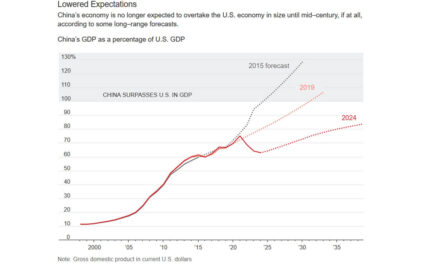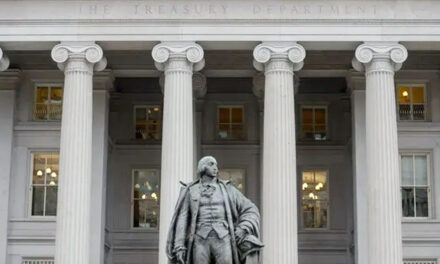
Liberal Media Agrees with Trump on NATO?
Presumptive nominee Donald Trump has been quite vocal about his thoughts on NATO, suggesting we readjust or create an entirely new coalition in order to put America’s resources to better use and to fight terrorism.
Huffington Post seems to agree with him, complaining that our allies have become free-riding dependents who do no more than take advantage of America’s powerful military.
The United States is allied with nearly every major industrialized power, but that position is not without drawbacks. In order to support our “friends,” we must maintain a vast military. If these forces fail to prevent foreign conflicts, the US is automatically involved.
“I think NATO is obsolete,” declared Trump on ABC’s This Week. “NATO was done at a time you had the Soviet Union, which was obviously larger – much larger than Russia is today. I’m not saying Russia is not a threat, but we have other threats. We have the threat of terrorism.”
The Cold War-era alliance was based on the principle of collective defense, but Trump rightly suggests that our allies aren’t carrying their weight: “We pay…a totally disproportionate share of NATO. We’re spending – the biggest alliance share is paid for by us, disproportionate to other countries.”
“It’s all fine if everybody partakes. But I don’t see other people partaking,” he continued.
But America (under the Obama Administration) has become a place that caters to those who would take advantage of their powerful friends. It’s just like welfare: why earn money if someone else will do it for you?
In a recent interview with Atlantic Monthly, President Obama complained that free-riders aggravate him. These are surprising words from the creator of Obamacare.
The president recently paid a visit to Saudi Arabia, one of such “free riders.” The KSA assumed long ago that the US military would protect them from their enemies. The first Gulf war had more to do with Saudi Arabia than it did with Kuwait.
The KSA finally started bolstering its military when it felt Obama’s commitment to Riyadh was fading. And the Saudis were outraged at Obama’s nuclear deal with Iran and his refusal to directly participate in the Syrian Civil War. Yet our alliance with the KSA has dragged on into the country’s war in Yemen, which has evolved from a local civil war to a regional sectarian battle.
Another mooch is Japan, which spent hardly 1% of its GDP on its military during the Cold War while facing Maoist China and the Soviet Union. Tokyo has just recently passed legislation allowing its military to help US forces under attack, but for decades the country’s only responsibility as our ally was to be protected.
Our commitment to Korea originated with the Korean War, which ended more than 60 years ago. Since then, the southern half of the continent has raced ahead of the North, with twice the population, an economy 40x as large, and a serious lead in technological prowess and other national powers. Even with the supposed existential threat of its northern neighbor, however, the Republic of Korea spends less of its GDP on its military than does the US. Seoul’s military is superior to that of the North in quality, but is seriously lacking in quantity. This is because the ROK assumes America will be there to protect her should anything go wrong.
Yet Washington’s pleas for its allies to do more garner no response. After years of substantial cuts, NATO’s European members were happy to report this year that they had reduced military outlays by only a small margin in 2015. And this is considered progress?
“One could argue during the Cold War that it was in America’s interest to defend countries even if they would not protect themselves. No longer,” writes Doug Bandow of Huffington Post. “Washington faces no hegemonic threat, no ideological competitor, no international peer…yet the alliances commit America to go to war in defense of other nations’ interest. At the same time such guarantees dissuade friendly states from doing more on their own behalf. If deterrence fails, as it often has throughout history, the good times will come to a dramatic and bloody end.”
In our quest to maximize our number of friends, we have created a swarm of dependents. America has tolerated these free-riders for too long. It’s time for Washington to shed some of these burdens instead of clinging to the hope that our allies will pick up the slack.
























Joe Gilbertson: where are you going with these threats? My free speech is facing intimidation, sometimes physical threats. Is this…
NOT BUSTED. You didn't have to say it. That is what I meant in the above post from me. But…
Just another ruse for taking jabs at Biden through alleged short comings of his. Ten days remaining in Biden's term…
I never said I WANT China to continue to own Panama. You made that up. First,I didn’t say it. Second.…
I absolutely do Not in any way, shape or manner fabricate ANYTHING you say. I do and will always tell…